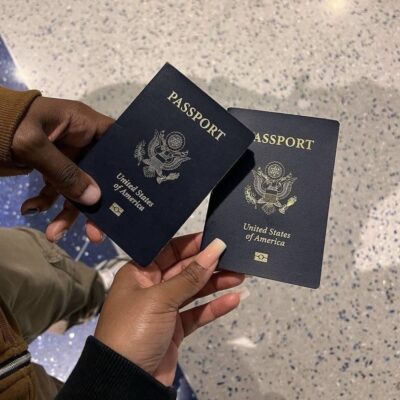Traveling is an exciting experience that allows you to explore new places, meet new people, and create lasting memories. However, unforeseen circumstances such as illness, accidents, flight cancellations, or lost luggage can turn your dream vacation into a nightmare.
This is where travel insurance comes into play. Travel insurance is designed to provide coverage for unexpected events during your trip, offering peace of mind and financial protection.With so many travel insurance options available, choosing the right one can be overwhelming.
Results
#1. What is your highest level of education?
#2. Do you have a valid work permit or visa for Canada?
#3. Are you willing to relocate to any province in Canada?
#4. What is your current employment status?
#5. How many years of experience do you have in your field?
#6. Which field are you looking for a job in?
In this article, we will guide you through the process of selecting the best travel insurance for your needs.
1. Understand the Types of Travel Insurance Coverage
Before selecting a policy, it’s essential to understand the different types of coverage available. Travel insurance policies typically fall into several categories:
a. Trip Cancellation and Interruption Insurance
This coverage protects you if you have to cancel or cut short your trip due to unexpected events, such as illness, a family emergency, or a natural disaster. It reimburses you for non-refundable trip expenses, such as flights, hotels, and tours.
b. Medical Insurance
Medical insurance is crucial when traveling abroad. While your regular health insurance may not cover you in other countries, travel medical insurance provides coverage for unexpected medical expenses, including doctor visits, hospital stays, and emergency evacuations.
It’s particularly important if you’re traveling to a country with high medical costs.
c. Baggage Loss or Delay Insurance
This coverage helps you recover the value of lost, stolen, or damaged baggage and its contents. It also covers additional expenses if your baggage is delayed, such as buying clothes or toiletries.
d. Emergency Evacuation Insurance
If you’re injured or ill while traveling, emergency evacuation insurance covers the cost of getting you to a medical facility, which can be especially costly if you’re in a remote area. It can also include transportation back to your home country if necessary.
e. Travel Delay Insurance
This coverage helps with additional costs if your travel is delayed due to circumstances like weather, mechanical failure, or strikes. It reimburses for expenses like meals, lodging, and transportation while waiting for your flight.
Submit Your Applications
f. Rental Car Insurance
If you’re renting a car during your trip, rental car insurance covers damages to the vehicle in case of an accident, theft, or vandalism.
2. Assess Your Travel Needs
Once you understand the types of coverage, assess your specific needs based on your trip. Consider the following factors:
a. Destination
If you’re traveling to a remote or high-risk destination, you may need comprehensive coverage, including medical evacuation and higher medical coverage limits.
Countries with low-quality healthcare or high medical costs (e.g., the United States) may require more robust medical insurance.
b. Trip Duration
For longer trips, you might want to consider policies that offer more extensive coverage, especially in terms of trip cancellation and medical insurance. For short trips, a basic policy with coverage for emergencies and baggage might be sufficient.
c. Activities
If your trip includes high-risk activities, such as skiing, scuba diving, or hiking, make sure your policy covers adventure sports. Many standard travel insurance plans exclude these activities, so you’ll need to buy extra coverage or choose a policy that specifically includes them.
d. Health Considerations
If you have pre-existing health conditions, some insurance policies may exclude coverage for medical issues related to those conditions. Look for a policy that includes coverage for pre-existing conditions or offers a waiver if certain conditions are met.
e. Cost of the Trip
If your trip involves significant financial investment (such as a luxury vacation, cruise, or long-term travel), you should consider a more comprehensive policy to protect that investment.
Trip cancellation insurance is particularly important in this case, as it covers non-refundable expenses.
3. Compare Travel Insurance Providers
Once you’ve determined your needs, it’s time to compare providers. Look for reputable insurance companies with positive reviews, excellent customer service, and a history of handling claims efficiently.
Here’s what to consider when comparing travel insurance providers:
a. Coverage Limits
Ensure that the coverage limits meet your needs. For example, if you’re traveling to a country with high medical costs, make sure the medical coverage limit is sufficient to cover potential expenses.
Compare policies to find the one that offers the best coverage within your budget.
b. Exclusions
Read the fine print and understand the exclusions of each policy. Common exclusions include acts of war, self-inflicted injuries, or injuries from participating in extreme sports. Make sure you’re comfortable with the exclusions before purchasing a policy.
c. Claims Process
A critical factor in choosing the right insurance is the ease of filing claims. Look for insurers that offer straightforward, accessible claims processes, such as online claim submissions and 24/7 customer service.
d. Reputation and Reviews
Check the provider’s reputation and customer reviews. Customer experiences with claims processing and customer support are crucial in determining how reliable the insurance company is. Look for independent reviews on trusted platforms.
e. Pricing
While price shouldn’t be the only factor in your decision, it’s essential to compare costs. The cheapest policy may not provide the best coverage, but you can find policies that offer a balance between affordability and comprehensive protection.
4. Read the Policy Carefully
Once you’ve narrowed down your options, thoroughly review the policy details. Ensure the policy covers all the situations you’re concerned about, including trip cancellations, medical emergencies, and baggage loss. Pay attention to:
- Deductibles: The amount you’ll need to pay out-of-pocket before the insurance kicks in.
- Coverage Limits: The maximum amount the insurance will pay for a particular event or service.
- Claim Process: Ensure you understand the steps to take in case you need to file a claim.
5. Purchase the Insurance Early
It’s a good idea to buy travel insurance as soon as you book your trip, especially for trip cancellation coverage. This ensures you’re covered from the moment you make the commitment.
Some policies offer additional benefits, such as coverage for pre-trip cancellation if your plans change unexpectedly.
FAQs on How To Choose the Right Travel Insurance
Do I need travel insurance for every trip?
While not legally required, travel insurance is highly recommended, especially for international trips, expensive vacations, or trips involving risky activities. It protects you from unexpected situations like cancellations, medical emergencies, and lost luggage.
Can I cancel my travel insurance?
Most travel insurance policies allow you to cancel and receive a refund within a specific period after purchase, typically within 10 to 15 days. However, this may not apply once your trip begins.
What happens if I need medical care while abroad?
If you have travel medical insurance, it will cover the cost of medical care during your trip, including emergency evacuations, doctor visits, and hospital stays. Make sure to carry the policy details and a contact number in case of emergencies.
Does travel insurance cover trip changes?
Some policies provide coverage for trip interruptions, such as delays, missed connections, or changes due to emergencies. However, these are subject to specific terms and conditions, so review your policy carefully.
Does my existing health insurance cover me abroad?
Most domestic health insurance plans do not provide coverage abroad. This is why it’s important to purchase travel medical insurance to cover potential medical expenses when traveling internationally.
Before You Go
Choosing the right travel insurance is an important step in ensuring a safe and stress-free trip. By understanding the various types of coverage, assessing your needs, comparing providers, and reading the fine print, you can select a policy that offers the best protection for your travels.
Whether you’re embarking on a short vacation or an extended journey, travel insurance gives you the confidence to enjoy your trip while knowing you’re covered against the unexpected.






I hereby apply for Visa sponsorship Job in Canada and I will be most grateful if my application is favourably considered.
I hereby apply for Budget friendly accommodation in Canada until I get a job reminiscent to my family needs.
I’m interested from Saudi Arabia country dear I’m driver with original license 🪪 and building line work carpenter decor in Saudi Arabia country
I hereby apply for Budget friendly accommodation in Canada until I get a job reminiscent to my family needs
I’m a Nigerian requesting a job as Caregiver A Registered Nurse worked with Department of health and human services Abuja Nigeria Had 30yrs Working experience Hope my request will be considered
I’ma Nigerian requesting a job as Caregiver A Registered Nurse worked with Department of health and human services Abuja Nigeria Had 30yrs Working experience Hope my request will be considered